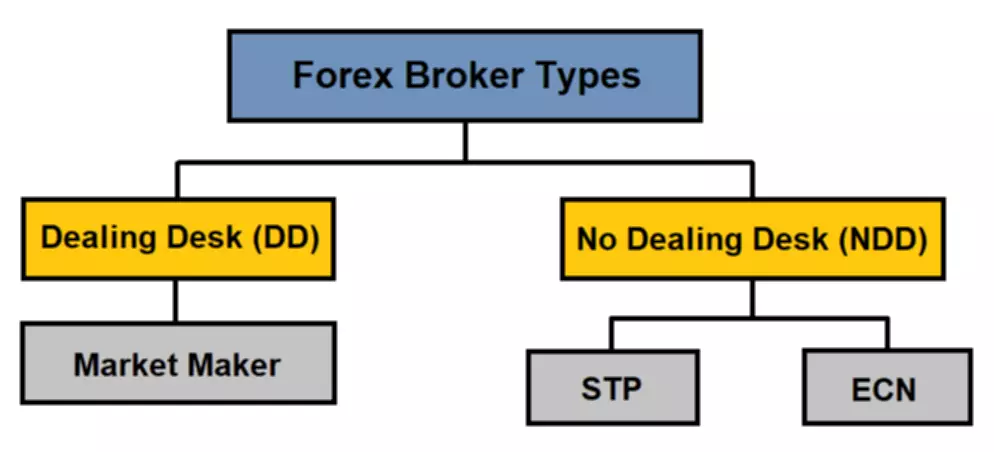Content
Operational CRMs manage and track your organization’s prospect and customer interactions to help you acquire new leads and retain existing ones. Users rely on this type of CRM to generate leads, convert leads into customers, record contact details, and serve customers. It also allows you to facilitate accounting, inventory, project, and human resource functions from a single system. Did you know that a CRM can be used for more than just sales activities? Because it stores customer information and communication tools to assist customers, you can use a CRM to improve your customer service operations. Until a few years ago, support and service staff did not have access to the same information that sales and marketing had.

For example, in ActiveCampaign’s CRM, you can view a lead’s entire history within the contact record. You can add notes, assign tasks to your sales team, view deal information, and see your contact’s complete details—all in 1 place. If you’re in the market for customer relationship management software , picking 1 can feel overwhelming. It empowers businesses to provide the highest quality of customer service by improving the speed and efficiency of responses. Support representatives can leverage interaction history to provide faster service for customer questions, problems, and service requests. Campaign management allows you to design your campaign, choose specific communication channels, allocate a budget, and evaluate the effectiveness of the campaign.
How To Choose From the Various Types of CRM Software
With the recurring and mundane tasks of data entry or follow-ups automated, your sales teams get to spend more time on productive tasks. An operational CRM provides all this data and more, so your customer service team can have a holistic view of the customer’s relationship with your company. Enhance marketing processes – Drill down into your customer data with laser focus. Learn which are the likely buyers and then launch campaigns to target similar buyers. With the help of the customer data in your CRM, you can analyze buying patterns and customer demographics to tailor the best possible marketing campaigns. Your marketing team should be focused on creating powerful marketing campaigns.

Automating sales and marketing tasks to increase conversion rates. CRM software solutions you choose is the best option to maximize your sales volume and boost your business. Learn more about likely buyers, and then start campaigns to attract similar buyers. Using the consumer data in your CRM, you can analyze purchasing trends and customer preferences to configure the best marketing strategies possible. Business reporting shows the company’s position on the market and its goods at a given time. On the other hand, Analytics studies the industry trends and recommends the products are likely to fit in with those trends.
Example of Types of CRMs and When to Use Them
Support is a critical part of running any CRM system, especially for small businesses that don’t have in-house technical support. We analyzed the types and availability of support offered by these providers through live chat, email, and phone. CRM integrations allow businesses to use their favorite productivity, collaboration, and management apps in conjunction with their CRM. This allows data from each system to always be in sync so users can complete tasks using one centralized system instead of going back and forth between screens. The best operational CRMs offer integration capabilities with tools your business already loves using.

There are no hard and fast rules about what kind of software can handle which tasks. You’ll find platforms that blend different components of each kind of CRM offering a mash-up of features. The 3 main types of CRM are operational CRMs, analytical CRMs, and collaborative CRMs. You don’t have to search your desk or pester your finance team to hunt down a pricing agreement—it’s all in 1 easy-to-navigate place.
Feedback is key for making informed decisions for improvement. If you don’t have a firm grasp of how your customers feel about your company, you could be missing out on opportunities to win even more people over to your business. Additionally, features like client portals and live chat options provide even more touchpoint opportunities, making it easy for customers to reach out and stay engaged with your brand.
Pipedrive: Best Operations CRM With Low-cost AI Capabilities
Sales reps can specify conditions for workflows to optimize time. This allows them to build lasting relationships with their customers and spend time on essential activities instead of mundane tasks. Operational CRMs take it one step further than more general types of CRM software by focusing on tasks and activities that drive day-to-day operations. Business processes like sales, marketing, and customer support are all fundamental aspects of operations, but it’s important to find a solution that meets your specific needs. Whether that’s integrating with social media, transitioning your business to the cloud, or anything in between, there’s a package that’s right for you.
Customer care and sales technology has branched off into many arms.
Service
Understanding the 3 types of CRM systems To get the most out of a CRM system, organizations must decide whether an operational, analytical or collaborative CRM system is right for them. Analytical CRM enables organizations to better understand the data gathered on customers and their interactions with the business. It’s a key resource for turning large amounts of data into actionable insights. Pipedrive boasts a clean and sleek interface, as well as essential tools like an automated sales assistant, workflow automation, and deal reports.
- This helps improve collaboration among different departments, enabling them to work together with ease.
- Technology applications enable supermarkets to track purchases by individual customers through bar codes scanning and customer identification cards (Hawkes R. 2002).
- Capabilities include order commitments, final production, replenishment, distribution management, and reverse distribution.
- When everyone accesses the same customer record, operational CRMs allow for better customer experiences.
- For example, you can choose to only display sales from the previous quarter or sales of a certain product for the last six months.
- C) Global supply chains typically have participants from a number of countries.
Here are several powerful benefits an operational CRM has over other types of CRMs. The easiest and most “close to cash” method of customer self-service is managing their billing and payment information. Offer a customer portal to sign in and update their method of payment, storing it safely in your operational CRM, not a sticky note. So your customer didn’t come back and buy the new-and-improved service.
Bitrix24: Best CRM for Operations With Ecommerce & Management Tools
Collaborative types of CRM software solutions share customer information across multiple departments and make it accessible to all. Each department also has access to customer activities and their interactions with the company. Zendesk has a great customer analysis function that’s part of their bigger CRM offering. It’s a great tool that extracts customer data from sales and service departments to help you make better decisions. It brings your marketing, project management, and sales functions under a single platform.
HubSpot CRM: Best Free CRM With Upgrades
For many business owners, they know the feeling of Goldilocks all too well. Most CRMs are designed for mega-corporate enterprises with thousands of staffers. While there’s https://xcritical.com/ nothing wrong with that, it can be intimidating to land on the right CRM for your business. There’s a good chance the excitement is going to wear off in a few days.
Simply grab one from the repository, tweak it, and send it off. Comprehensive CRM that tackles everyday operations, from sales to marketing campaigns and team collaboration. Allows you to create unlimited work and user groups, set up an HR help desk, and centralize storage of documents. Now that you’ve ingested enough intel as to the benefits and uses of operational CRM systems, it’s time to compare the best examples of operational CRM tools. These top 13 CRM softwares are compared for pros, cons and pricing, and if they offer a free version.
Who should use an operational CRM?
Operational CRM helps you store customer information, deals, and leads in a unified repository. It boosts efficiency via service automation, allowing businesses to make the most out of limited resources. This supports more customer-facing Customer Relationship Management CRM systems where customers use the web browsers to access company specific information and services.
When you decide which type of CRM that you want to deploy, you have the freedom to choose the solutions that work for you without overpaying for features that you’ll never use. Collaborative CRM bridges the gap between teams and departments to share information and create a seamless customer experience. Bitrix24 is an excellent choice for businesses engaged in ecommerce activities.
Your campaigns might offer helpful tips for using their product, or alert them to your convenient customer portal if they experience any issues. Operational CRMs have a myriad of tools you can use to enhance each client’s experience. You’ll be able to provide quicker response times to client outreaches and offer them more information with less wait time — which is key to keeping customers happy with your company. This type of sales automation tool optimizes your business’s operations by storing all of your crucial client data in one convenient place. It allows salespeople to keep tabs on their buyers and serve their individual needs, which results in higher customer satisfaction and retention.
An operational CRM can help you automate how you market to leads and prospects. You can drop people into email funnels based on the information you have about them. In this post, we’ll cover the 3 most popular types of CRM systems, the features and benefits unique to each type, and which CRM ones are right for your type of business.
Insightly is a leading sales-focused CRM with robust project management and delivery features. You can customize a pipeline with your sales process stages and move deals along, tracking tasks and milestones along the way. After winning a deal, seamlessly transfer it to a separate project pipeline to ensure you deliver on your promises. what does operational crm typically support You can even track internal projects to ensure that everyone at your organization follows the same processes. You can automate everyday tasks such as data entry and create email templates so you don’t have to keep recreating the same content. You can even automate certain aspects of customer service through chatbot software.
HubSpot CRM has built-in dashboard reporting and analytics features that let you gauge the performance of your entire sales funnel. Analytical CRM solutions process and analyze customer interaction data to extract valuable patterns. The goal is to spot trends, predict behavior, identify upsell and cross-sell opportunities, build buyer personas, and more. A free plan with limited features is available for up to two users. Save all your contacts in one place, and say goodbye to using multiple disparate tools to keep your records up to date. Automatically assign tasks to your teams so that they don’t pile up or get overlooked.
This helps further improve the accuracy of the reports that the software solution produces. Salesforce offers CRM tools for a variety of categories and allows for a myriad of third-party integrations. It also offers a wide range of features depending on your business needs.

